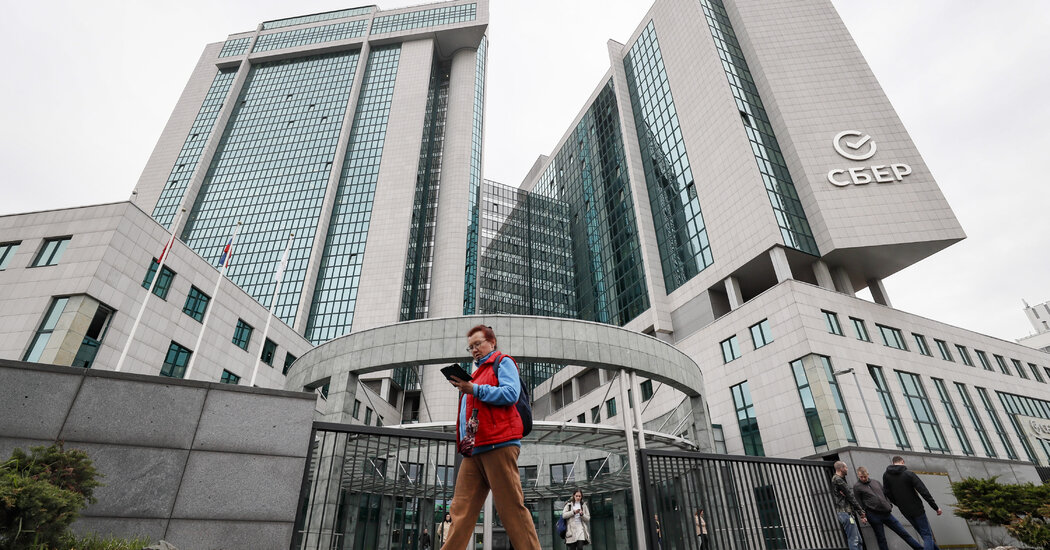Switzerland, a leader in gold refining, bans Russian gold imports.

Switzerland on Wednesday banned imports of Russian gold and gold products, on the heels of similar moves by the European Union and the United States.
The Federal Council, the Swiss government’s seven-member executive board, said in a statementthat the gold ban aligned with the European Union’s latest sanctions on Russia in response to its invasion of Ukraine, and that Switzerland was “implementing the most urgent measures in terms of time and substance.”
The council added that it had frozen the assets of Russia’s state-owned bank Sberbank, after imposing sanctions last month on dozens more individuals and organizations on the European Union’s sanctions list.
“Switzerland’s list of sanctioned persons and entities in connection with the situation in Ukraine is thus fully in line with that of the E.U.,” the council said.
Agricultural products and oil supplies remain excluded from sanctions, the statement said, attributing this decision to the global food and energy crisis.
The country is a leader in the gold refining market, according to a 2018 watch and jewelry sector report by the World Wildlife Fund, with 60 to 70 percent of the world’s gold passing through Switzerland to be refined. The precious metal is a common material in Swiss luxury watches.
The European Union in July banned imports from Russia of newly minted and refined gold, following similar announcements by the United States, Britain and other Group of 7 countries in June.
Officials have described the gold sanctions as another strategy to isolate Russia from the international financial system, with Ukraine’s allies already banning most trade with Russia.
Russia is one of the world’s biggest producers of gold, and has cranked up the mining of new gold to compensate for the frozen reserves held by Russian companies and oligarchs under sanctions, said Christopher Swift, a national security lawyer who formerly worked at the U.S. Treasury Department’s office of foreign assets control.
Demand for gold has shrunk 8 percent compared with this time last year, according to the World Gold Council.
Patricia Cohen contributed reporting.